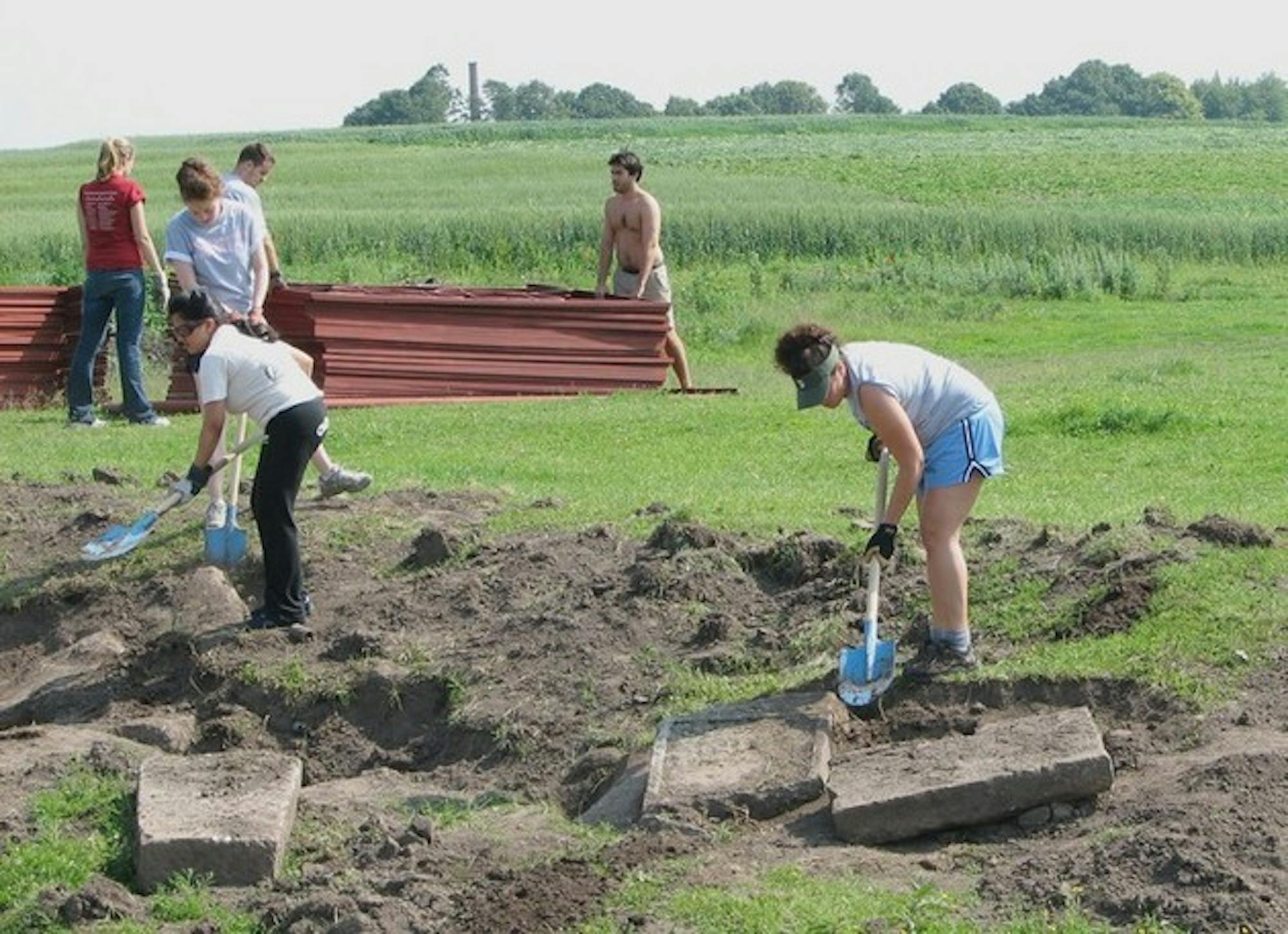Project Preservation, a Spring term program created by Dartmouth Hillel and co-sponsored by the John Sloan Dickey Center for International Understanding, combines classroom research and discussion with a summer cross-cultural education and service project.
The program's students study the Holocaust by reading and reflecting on different books that examine the many facets of one of the world's most infamous crimes against humanity.
According to Julio Gomez '09, a participant in this year's trip, students met once a week in reflection sessions to discuss readings and evaluate the magnitude of the Holocaust. Guest lecturers were brought in to contribute to the group's overall understanding.
"We read [the book] 'Everything is Illuminated,' which was great because the story takes place in a town near the one we worked in," Zoe Dmitrovsky '09 said.
The culmination of the project began in June, when students and advisers Rabbi Edward Boraz of Dartmouth Hillel and Aine Donovan, director of Dartmouth's Ethics Institute, began a two week journey to Poland and Ukraine.
"We visited the concentration camps Auschwitz and Birkenau, which was something I always wanted to do," Dmitrovsky said. "But going with Dartmouth students made it a greater experience because I did it with kids from extremely different backgrounds,"
The students' final destination was Druzhkopol, Ukraine, a town whose large Jewish population was wiped out by the Nazis during World War II. No Jews currently live in Druzhkopol.
Some students were struck by the experience of being in Druzhkopol.
"It was truly one of the most beautiful places I've been," Avnish Gungadurdoss '09 said. "We couldn't even talk to people but I personally felt the current residents of the town were so hospitable and welcoming,"
In Druzhkopol, members of the group uncovered and restored 24 headstones and constructed a fence around the area to prevent the disruption of the site.
The team also erected a stone monument over the site of a mass grave. With the assistance of the town, a ceremony was held to celebrate the consecration of the area and the memory of the past inhabitants.
Gary Gershfield, a native of New York whose family had lived in Druzhkopol for generations, was the primary sponsor of the trip. Gershfield's great-grandfather was one of the approximately 1,000 Jews that died during the massacre.
Even those without special ties to the Holocaust were affected by the trip.
"It was an intense experience but so positive that it will stick with me forever," Gomez said. "Seeing the places where the Holocaust took place affected me. I'm not Jewish but it really helped me connect."




